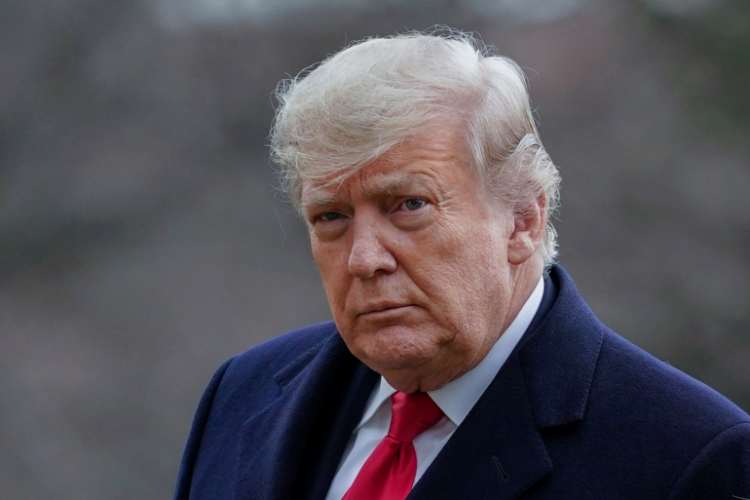By Aaron Miller-
A federal appeals court on Thursday terminated the special master review of documents seized from Donald Trump at his Mar-a-Lago property, effectively allowing the justice department to regain access to the entirety of the materials for use in the criminal investigation surrounding the former president.
The decision by the US court of appeals for the 11th circuit is a major blow for Trump in a decisive ruling that concluded that a lower-court judge should never have granted his request for an independent arbiter in the first place and is unlikely to be overturned in the event of appeal.
“The law is clear,” the appeals court wrote in an unanimous 23-page opinion. “We cannot write a rule that allows any subject of a search warrant to block government investigations after the execution of the warrant. Nor can we write a rule that allows only former presidents to do so.”
The ruling removed the lower-court judge’s order, allowing federal prosecutors to use the unclassified documents, adding that to the documents marked classified they previously regained in an earlier appeal – in the criminal investigation examining Trump’s mishandling of national security materials.
The 11th circuit stressed that US district courts should intervene in criminal investigations before charges have even been filed only if there is some exceptional circumstance given the separation of powers between the judicial and executive branches.
In what could be viewed as a defiant response to the ruling, the former president said his presidential campaign will centre around the rioters who stormed the Capitol on 6 January, while claiming that the people facing charges and prison time over the violent insurrection are being treated “unconstitutionally”.
“People have been treated unconstitutionally, in my opinion, and very, very unfairly, and we’re going to get to the bottom of it,” he said in a video screened on Thursday night at a fundraiser for families of those charged in attacking the Capitol. The country, he cautioned, “is going communist.”
Earlier the former president took to Truth Social to defend hosting the rapper formerly known as Kanye West at Mar-a-Lago, writing that “the story in AP, written by the untalented and very unreliable Jill Colvin, who I unfortunately got to know at the White House, is Fake News”.
In a statement, a Trump spokesman said: “The decision does not address the merits that clearly demonstrate the impropriety of the unprecedented, illegal and unwarranted raid on Mar-a-Lago. President Donald J Trump will continue to fight against the weaponized Department of ‘Justice.’”
Trump demanded the appointment of a special master to examine the documents seized from Mar-a-Lago – including 103 bearing classified markings – shortly after the FBI searched the resort on the basis that some of the materials could be subject to potential privilege protections.
The requests were granted by US judge Aileen Cannon, a Trump appointee, who gave exceptional deference to Trump on account of his status as a former president and decided he satisfied elements of the four-part Richey test used to determine whether to intervene in a criminal investigation.
The 11th circuit ruled that Cannon should never have appointed a special master, writing that she did not have the authority to prevent the department from using the seized materials – a move that is also without legal precedent.
The only instance in which US district courts could restrain an executive branch criminal investigation, the 11th circuit wrote, was if there was some exceptional circumstance that satisfied the four-part Richey test to justify the intervention.
Trump did not meet any of the four tests under Richey, particularly the first test about whether he suffered “callous disregard” to his constitutional rights as a result of the FBI’s search of Mar-a-Lago, which the 11th circuit ruled was the most important of the Richey standards.
Trump did not meet the second “possessory interest” test in the seized materials because he could not articulate which documents he needed, the 11th circuit said, and Trump did not meet the third test about whether he would be irreparably harmed if the materials were not returned.
“Plaintiff’s task was to show why he needed the documents, not why the government did not,” the 11th circuit wrote.
Trump also failed to meet the fourth test about whether he could seek recourse besides judicial intervention, the 11th circuit wrote, rejecting his argument that he needed the injunction because some of the seized materials might have been outside the scope of the search warrant.
“The status of a document as personal or presidential does not alter the authority of the government to seize it under a warrant supported by probable cause. The Department of Justice has the documents because they were seized with a search warrant,” the three-judge panel wrote.
The ruling heaps pressure on Trump who recently lost a bid to keep his tax returns away from the public.
After U.S law makers gained access to his tax returns, they accused Mr Trump of overstating the value of his properties to get more favourable loans and tax rates, as his Trump Organization faces both civil and criminal investigations in New York.

